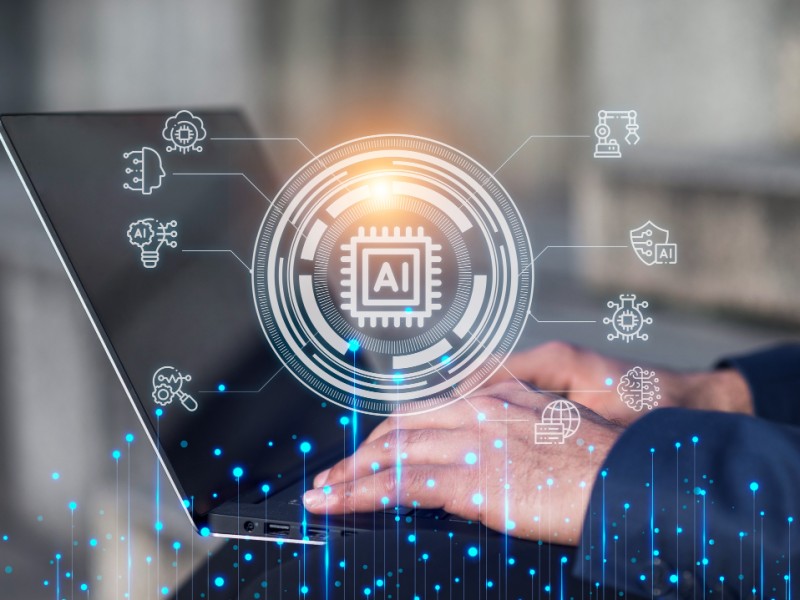Blog
How AI is revolutionizing ERP solutions: 5 key trends to watch

Enterprise Resource Planning (ERP) systems are the backbone of many businesses, managing everything from finance and accounting to inventory and customer relationships. However, traditional ERP systems can be complex and inflexible, often requiring significant manual effort and offering limited insights.
Artificial intelligence (AI) is rapidly changing the ERP landscape, offering new possibilities for automating tasks, predicting outcomes, and making better business decisions. Here are five key trends to watch:
1. Automation of Repetitive Tasks
One of the most immediate impacts of AI in ERP is the automation of repetitive tasks. AI algorithms can handle tasks such as data entry, reconciliation, and invoice processing with incredible speed and accuracy, freeing up valuable time for employees to focus on more strategic work. This not only improves efficiency but also allows employees to dedicate their expertise to areas like financial planning, risk management, and strategic decision-making.
2. Enhanced Data Analysis and Insights
AI possesses an unparalleled ability to analyse vast quantities of data. It can uncover hidden patterns, identify trends, and predict future outcomes with remarkable accuracy. This data-driven approach empowers businesses to anticipate market fluctuations, optimize their financial strategies, and make informed decisions about inventory, production, and marketing. AI can even identify anomalies and predict cash flow fluctuations, providing valuable foresight and mitigating financial risks.
3. Personalized Dashboards and Reporting
AI is revolutionizing the way information is presented within ERP systems. Traditionally, static and generic reports were provided to stakeholders who often lacked the context or expertise to interpret the information effectively. AI can personalize dashboards and reports, tailoring them to the specific needs and interests of each user, from executives to department heads. This ensures that each individual receives the most relevant and actionable information, fostering transparency and communication across various levels.
4. Predictive Maintenance and Inventory Optimization
AI is making it possible to predict equipment failures and optimize inventory levels with remarkable accuracy. Through predictive maintenance, AI algorithms can analyse sensor data and identify potential problems before they occur, allowing for proactive repairs and preventing costly downtime. Similarly, AI can analyse historical sales data and predict future demand, enabling businesses to optimize inventory levels and avoid stockouts.
5. Cognitive Automation and Collaborative Decision-Making
As AI technology advances, we can expect to see the emergence of cognitive automation tools that handle complex decision-making tasks traditionally reserved for highly skilled professionals. These intelligent systems will analyze data, consider various factors, and offer informed recommendations, assisting businesses in making optimal choices. This collaborative approach between humans and AI will not replace the critical role of human expertise but rather augment it, leading to more informed and impactful decision-making.
While AI automation will undoubtedly reshape the ERP landscape, it's important to remember that technology is not intended to replace human professionals. Instead, it serves as a powerful tool that empowers employees to focus on high-impact activities. This shift necessitates a proactive approach from businesses, who must embrace continuous learning and develop complementary skills like critical thinking, problem-solving, and effective communication. By upskilling and embracing AI, businesses can remain competitive and thrive in the evolving technological landscape.
The future of AI in ERP solutions promises a more efficient, insightful, and competitive environment for businesses. By leveraging the power of AI, businesses can unlock new opportunities, optimize operations, and achieve sustainable growth. This dynamic landscape demands a collaborative approach, where humans and AI work hand-in-hand to navigate the ever-changing business landscape and achieve success. As we move forward, the future of ERP lies not in automation alone but in the strategic collaboration of human expertise and artificial intelligence, paving the way for a brighter and more successful business future.
Are you ready to explore how AI can transform your ERP system and take your business to the next level? This email address is being protected from spambots. You need JavaScript enabled to view it. to learn more about our AI-powered ERP solutions and how we can help you unlock the potential of your data.


